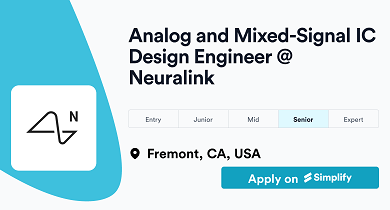Master AI Development: 5 Programming Languages You Need to Learn (Artificial Intelligence)

As artificial intelligence (AI) continues to grow and evolve, it’s becoming increasingly important for developers to have a solid understanding of programming languages that can be used in AI development. With so many programming languages out there, it can be overwhelming to know which ones to focus on. In this article, I’ll be sharing the top 5 programming languages you need to learn and master for AI development.
Introduction to AI development
Artificial intelligence is the branch of computer science that deals with creating intelligent machines that can perform human-like tasks. It involves developing algorithms that allow computers to learn from data, recognize patterns, and make decisions based on that data. AI is used in a wide range of applications, from chatbots and virtual assistants to self-driving cars and medical diagnosis.
Why programming languages are important for AI
Programming languages are the tool used to create the code that powers AI systems. These languages allow developers to write the algorithms that enable computers to learn and make decisions. Different programming languages have different strengths and weaknesses, and some are better suited for AI development than others.
Top 5 programming languages for AI development
1. Python: The most popular language for AI
Python is widely regarded as the most popular language for AI development. It’s used in a wide range of applications, from web development to data analysis and machine learning. Python’s popularity in AI development is due to its simplicity, readability, and vast library of open-source tools and frameworks, such as TensorFlow, Keras, and PyTorch. These tools make it easy to build and train machine learning models, making Python a great choice for beginners and experienced developers alike.
2. Java: A versatile language for AI
Java is another popular programming language for AI development. It’s known for its versatility and scalability, making it a great choice for developing large, complex AI systems. Java’s object-oriented programming model makes it easy to write modular, reusable code, which is essential for building AI systems that can be easily maintained and updated. Java also has a number of open-source tools and frameworks for AI development, such as Weka and Deeplearning4j.
3. R: A language for data analysis and machine learning
R is a programming language that’s specifically designed for data analysis and machine learning. It’s widely used in the scientific community for statistical analysis and data visualization, and it’s becoming increasingly popular in AI development. R has a large library of open-source tools and packages for data analysis and machine learning, making it a great choice for developers who want to build AI systems that can work with large datasets.
4. C++: A fast and efficient language for AI
C++ is a high-performance programming language that’s known for its speed and efficiency. It’s used in a wide range of applications, from gaming and graphics to databases and networking. C++ is also a popular choice for AI development, particularly when it comes to developing systems that require high processing speeds or real-time performance. C++ is the language of choice for many AI applications in robotics, autonomous vehicles, and aerospace.
5. Lisp: A language for symbolic AI and natural language processing
Lisp is a programming language that’s designed for symbolic AI and natural language processing. It’s used in a wide range of applications, from chatbots and virtual assistants to natural language processing and speech recognition. Lisp’s strength lies in its ability to manipulate symbolic expressions, which makes it well-suited for developing AI systems that can understand and process natural language.

Learning and mastering the selected programming languages
Learning and mastering these five programming languages is essential for anyone interested in AI development. Each language has its own strengths and weaknesses, and developers should choose the language that’s best suited for their specific application. For beginners, Python is a great place to start, as it’s easy to learn and has a large community of developers who can provide support. For more experienced developers, Java and C++ offer more advanced features and greater control over the system’s performance.
Resources for learning AI development with these programming languages
There are many resources available for learning AI development with these programming languages. Online courses, tutorials, and books are all great options for getting started. Many of the open-source tools and frameworks mentioned earlier also have extensive documentation and community support. Some popular resources for learning AI development include Coursera, Udemy, and edX.
Conclusion
As AI continues to grow and evolve, it’s becoming increasingly important for developers to have a solid understanding of the programming languages used in AI development. Python, Java, R, C++, and Lisp are all popular choices for AI development, each with its own strengths and weaknesses. By learning and mastering these languages, developers can create powerful AI systems that can perform a wide range of tasks.












